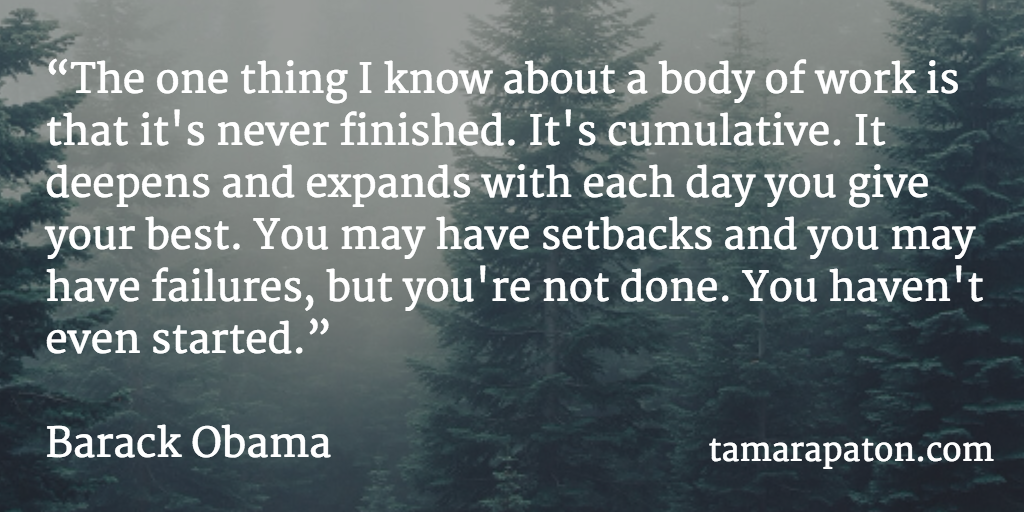

Right now I’m working with a couple of directors who would disappoint every kindergarten teacher on the planet. They don’t say please and they don’t speak nicely. Throw in some old-fashioned passive aggressive behaviour and you have two truly ineffective corporate directors.
Watching them self-destruct is frustrating, yet educational. I’m learning so much from observing their moves and guessing their motives. It’s a fascinating study in human nature and decades-old bad parenting.
Although the average director is well into mid-life, we build the foundation of a board career early. When I see a director lash out or talk over another, I wonder what in his past nurtured the undesirable habit. And as the parent of two youngsters, I can’t help but apply the resulting lessons at home.
With this in mind, I’ve identified four characteristics of effective board directors that we can develop in our earliest years and nurture indefinitely. If you don’t embody them, you can blame your parents, then set out to make up for lost time.
1. Effective corporate directors have an appetite for discomfort
My most engaging boardroom experiences have involved a level of discomfort. Questioning a view or sensitive topic requires courage that most new directors underestimate. Even a director’s career path can be uncomfortable, as we build a range of experiences off of the standard corporate ladder.
Psychologist and MacArthur Fellow Angela Duckworth points to grit as the missing link between intelligence and performance. Although Duckworth often researches grit in military and corporate settings, her early theories emerged while teaching public school math. Eventually, National Spelling Bee competitions and inner-city schools became her research lab, in part because we start to develop tolerance for discomfort at an early age.
The work of Stanford University professor Dr. Carol Dweck influences Duckworth’s thinking about how to build grit:
“Dr. Dweck has shown that when kids read and learn about the brain and how it changes and grows in response to challenge, they’re much more likely to persevere when they fail, because they don’t believe that failure is a permanent condition.”
I’m not a psychologist, but I know enough to be sure that helicopter and snowplough parents aren’t doing their kids any favors. Sustaining confidence amid unconventional choices, uncertainty and discomfort is critical in the boardroom, and best begins early in life when instincts form.
2. Effective corporate directors commit to excellence in the niches
Today’s boardroom is a no-mans land for the generalist. Having a mile-wide, inch-deep view on a business will not position a director to contribute in a meaningful way. Instead, we offer boards our mastery of a small handful of functions and sectors.
Think back to a time when your parents reviewed your report card. As they skimmed past the As and their eyes landed on a C, did they ask about the weakness? Or did they explore what lit you up about the A subjects?
Report card conversations send messages about what really matters. Tomorrow’s directors know the value of being uniquely skilled at something. They know the value of building their 10,000 hours of experience early, at the expense of other interests.
3. Effective corporate directors shift dynamically
If you coach a soccer team of 7-year olds, do you steer them solely to win? Or do you give them an experience learning the game and working with others?
If we’ve been taught that winning is all that matters, we aren’t likely to be skilled collaborators in the boardroom. Successful directors have a “loose-tight” approach to their goals. After diligent preparation, they have a clear view of their perspective on an organization’s best path. They are open to change, however, when dialogue reveals new insight.
Some of my less effective board colleagues resist new information that tests their view. They white knuckle their commitment to their goal or “right answer”, just as a child might grab their ball and flee the playground.
4. Effective corporate directors thrive in ambiguity
Despite Robert’s Rules of Order, the boardroom can be an ambiguous environment. When faced with a challenge, a well-mannered board can abruptly toss aside its respect for rules, norms and routine. Without notice, we can find ourselves facing heightened emotions and no playbook.
Although every board has a chair, that individual is not in charge. The chair works in service of the board, using influence rather than authority. Directors must find common ground with one another, a challenge for those lacking strong social skills.
We can prepare ourselves (and our children) for this environment by practicing patient observation before speaking. Ask what motivates others’ behavior before responding. To help our peers do the same, we can communicate authentically, beginning with our big picture objective.
We can all learn these critical skills, along with patience, empathy and impulse control, in a variety of places. Perhaps surprisingly, I found them in jazz. Collaborating with other young musicians taught me the importance of preparing well in advance. Mastering technique required years of commitment, but eventually freed me to be fully present for the group. Our collective performance arose from an awareness of one another, and the confidence that our individual contributions would emerge when they best served the larger whole.
Whether a director develops these skills in sports, the arts or academic pursuits isn’t important. What matter is our willingness and ability to bring these practices to boards, along with a healthy dose of good manners.
If you found this post interesting, please “Like,” Comment,” “Share,” and/or Tweet. I invite you to follow me on LinkedIn and via Twitter.










